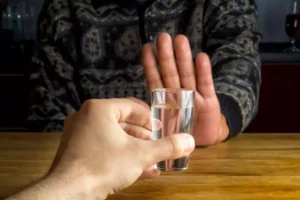Sober living
Alcohol relapse How to help an alcoholic who relapsed

In summary, researchers have extensively investigated the effects of stress on AOD self-administration in animals. These studies found that stressful experiences—whether acute or chronic and whether physical or psychological in nature—can contribute significantly to the animals’ AOD self-administration. Numerous studies using various animal models have examined the relationship between stress and the initiation or the reinstatement of alcohol use after a period of abstinence. The term “stress” generally refers to the reactions of the body to certain events or stimuli that the organism perceives as potentially harmful or distressful. Such stress-inducing events or stimuli, which are referred to as stressors, can be either physical (e.g., unusual environmental conditions or a physical attack) https://ecosoberhouse.com/ or psychological (e.g., occupational or familial difficulties) in nature.
- During this stage, a person may not be thinking about using drugs or alcohol, but their emotions may be placing them in jeopardy of relapse.
- Seeking professional assistance can help you return to your recovery, manage any emotional distress or withdrawal symptoms, and teach or adapt your coping strategies so that you can better deal with triggers and cravings in the future.
- For example, alcohol administration increases brain serotonin metabolism in animals (LeMarquand et al. 1994).
- The information we provide is not intended to be a substitute for professional medical advice, diagnosis or treatment.
Stage 3: Physical Relapse

Stress in humans alcoholism treatment often leads to craving, and craving, in turn, frequently results in relapse. Thus, one can reasonably assume that opiate antagonists—which are considered anticraving medications—could reduce stress-induced craving and thereby decrease the risk of a stress-induced relapse. Animal studies have suggested that another neurotransmitter, serotonin, also may play a role in the relationship between stress and AOD use. For example, alcohol administration increases brain serotonin metabolism in animals (LeMarquand et al. 1994).
Social Factors
- It is a romantic notion but the actual reason this occurs is that smell is connected to the part of the brain that triggers memory.
- These setbacks do not even necessarily mean that you need to reenter intensive addiction treatment.
- Before learning what to do when an alcoholic relapses, you must first understand the stages of relapse.
Each time that these people drink, their brains adapt to the presence of alcohol. The adaptations make the brain crave alcohol, which makes Alcohol Relapse it harder to quit drinking. All alcohol relapses are linked to these vulnerabilities in the brain.

Is Relapse Part of Recovery?
- Rate your triggers from most likely to cause a relapse to least likely to cause a relapse.
- For more detailed insights, exploring statistics for substance abuse in medical professionals can reveal how peer support within professional networks also contributes to sustained recovery and reduced relapse rates.
- He believes in the value of hard work and dedication to overcoming mental illness and will help his patients to achieve their mental health goals.
- Some clinicians will divide this stage of relapse into a lapse and then the actual relapse.
- Unfortunately, a relapse during alcohol addiction recovery is a common occurrence, but it does not constitute a failure in treatment or in the person trying to recover.
- Additionally, relapsing can be dangerous, as you might attempt to use the same amount of a substance that you used to during your addiction, leading to a life-threatening overdose.
Create a list of healthy coping skills and tools you can use when cravings or thoughts of relapse occur. These coping skills can include building a healthy support system of friends and family. Alcohol relapse is a common part of the process of becoming sober and because alcohol is so prevalent in society the risk is always there. We understand how hard it can be to see someone you love relapse after all the progress they have made and at times it may seem as if it was all for nothing.

Tip: Allow yourself the space to process and ask for help.
Alternatively, you may start to look into more formal treatment. A relapse can be a one-off event or even a short-term situation, but it is a part of your recovery. Most, if not all, people who have relapsed will say that during each relapse they learn something about themselves.
- While it is a common part of the recovery process, it can lead to dangerous behaviors that may harm both the relapsing individual and their loved ones.
- Sometimes it can be hard to figure out what led to a lapse or relapse.
- You begin to abandon the daily routine or schedule that you developed in early sobriety.
- Further exploration of these connections should lead to important pharmacological developments in the prevention and treatment of AOD abuse.
- The longer you continue to use, the more complicated it can become to stop using, especially if it is a substance on which your body can become physically dependent, such as alcohol.
- In the future, individualized treatment approaches that emphasize stress management strategies in those patients in whom a clear connection between stress and relapse exists will become particularly important.
